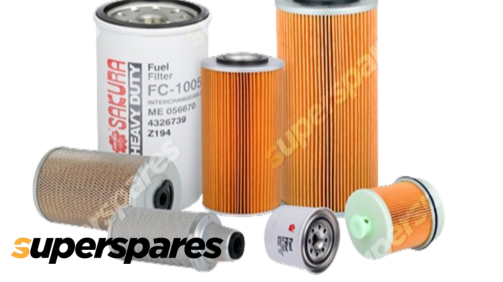When Is It Time to Replace My Fuel Filter
Author: superspares

What Is A Fuel Filter?
To ensure all of the fuel reaching your engine is clean, it must pass through one (or two) filters specially designed to catch and hold any impurities present."Impurities"can include sediment that collects at the bottom of a fuel tank over time. Sediment even affects brand new vehicles if they fill up from a gas station with an underground storage tank that's recently been filled and effectively "stirred up". Whether gunk in the fuel originates from sediment or poor quality gasoline doesn't matter, it must be prevented from reaching the engine where it can cause real harm.
Cleaning the fuel that's sent to the engine also keeps fuel injectors spraying at full force instead of becoming clogged up and ineffective.
Where Is A Fuel Filter Located?
The location of a fuel filter varies from vehicle to vehicle. On many newer cars and trucks, the filter is located in the fuel tank where it may or may not be part of an integrated fuel pump module assembly. Or, it may be mounted on the vehicle frame outside of the tank where it's surrounded by a protective shield. Many vehicles are equipped with two filters – one inside the tank, and one outside the tank along the fuel line somewhere.
In some cases where the filter is inside the fuel tank, it may fall under the category of "non-serviceable" if it's part of an integrated pump assembly. This means the pump contains a permanently-mounted filter element that's not designed for regular replacement. Instead, it's only replaced when and if a new fuel pump is installed.
Some fuel filters mounted in the top of the fuel tank can be easily accessed through a portal located below a removable rear passenger seat cushion.
However, some filters mounted in the top of the fuel tank are designed for easy replacement thanks to an access portal located below a removable rear passenger seat cushion.
Signs Your Old Fuel Filter Needs Replacement
In the beginning stages of a clogged fuel filter, you'll experience poor fuel mileage. As the problem worsens, symptoms typically manifest themselves in the form of hard starting, uneven idling, hesitation, and loss of power. Your engine might even run normally for a few blocks after starting, then bog down completely when more power is needed for an uphill grade or a highway on-ramp. Sputtering or stalling may occur.
Reduced or inconsistent fuel pressure resulting from clogged filters will be detected by modern engine management computers because of random cylinder misfires that occur as a result – usually when the engine is under load. If multiple misfires are present after enough on-off cycles of the key, the dreaded check engine light will come on. It's important to note that spark plugs can also be fouled by these improper running conditions, so they may be a primary or secondary cause of the check engine light.
A scientific method that technicians use to check the condition of a fuel filter is to perform a fuel pressure test near the injectors at the fuel rail. The psi (pounds per square inch) reading measured after the fuel has gone through the filter is compared to what the normal specified psi should be for the vehicle. A significant amount of reduction can signify a clogged filter. If this occurs, fuel filters are replaced and the psi is re-checked to ensure the pump itself is operating properly.
When To Replace A Fuel Filter
Even with cleaner gasoline coming out of the pumps these days, we still recommend replacing fuel filters regularly on vehicles where it's possible to do so. For newer cars and trucks, go with replacement every 60,000 miles - unless the manufacturer says to do it more frequently.
If the manufacturer specifies replacing the fuel filter at 30,000 miles, do it. The quality of gasoline may have improved, but filters designed for older vehicles tend to be smaller in size because they were meant to be replaced more often. No matter how you look at things, a smaller filter is going to reach the end of its functional lifespan sooner.
If your filter already has a few miles on it and you've accidently run out of gas, we strongly recommend replacing your fuel filters right away - assuming it can be serviced. This is because any aforementioned debris collecting at the bottom of the tank has now been drawn into the fuel pump and sent forward to the filters where it has jammed up. This has an extremely negative effect on fuel flow, and the extra strain of pumping fuel past gunk blockage can often finish off older fuel pumps which would otherwise have some life left in them.







